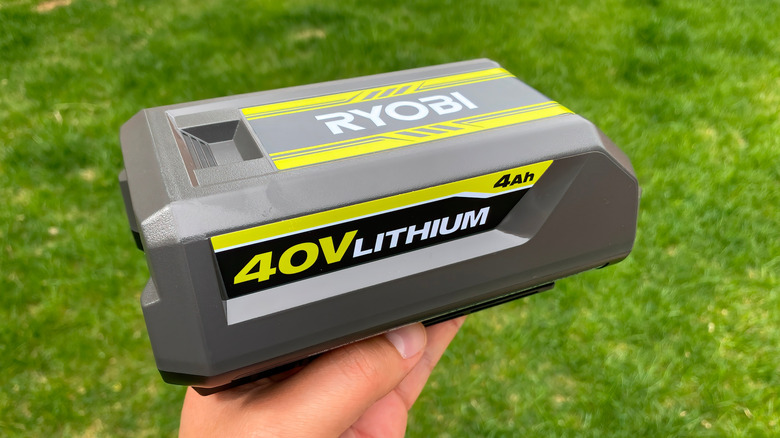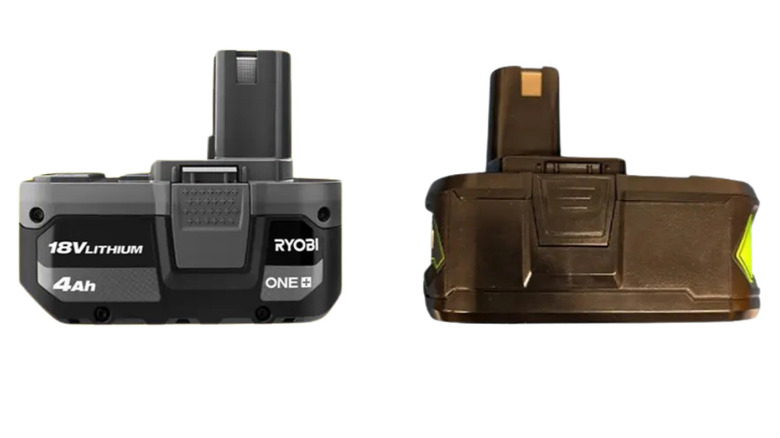Bought A Ryobi Battery Online? Here's How To Tell If It's Real Or Fake
Authentic Ryobi power tools are available on the brand's website as well as home improvement stores like Home Depot. Although you should be wary of buying Ryobi batteries secondhand, some users may look to alternative sources for batteries if they are looking for cheaper options. Knock-off batteries from third-party sellers are one thing, but counterfeit batteries made to look like Ryobi products that are actually fake are another.
If you suspect that you inadvertently bought a counterfeit battery, there are some things you should check right away. First of all, authentic Ryobi batteries will have the Ryobi name, voltage platform, and volts clearly printed on the battery in addition to the company's familiar green color on the housing. All important specs, including compliance information, model number, and serial number, should also be present.
Even if it does have similar markings, however, you may still have a counterfeit battery. Bogus batteries could have the Ryobi name but in a different font, without the signature indents on the "R" and "B." Plus, if the logo, specs, and other information are obviously printed onto labels that peel off, that's a red flag. Sometimes, the proof can be in how the battery itself feels, too. Real Ryobi batteries are heavy and add weight to your tools. Phony Ryobi batteries can weigh less, which may mean they don't have the internal power they should. Genuine Ryobi batteries are also sturdy, so if the plastic feels cheap, or if the battery doesn't fit your tools or chargers properly, then it's probably not Ryobi after all.
What to do if you think you think you have a phony battery
Ryobi batteries are built with lithium-ion cells and protective technology. Counterfeit power tool batteries will likely not have tested components inside that authentic branded batteries have. That means when you attach a phony battery to your Ryobi tool, you're probably not going to get the work experience you expect.
A bigger issue with counterfeit batteries, however, is that they can be dangerous. One eBay buyer, for example, reported that a phony battery caused a charger to catch fire. While all lithium-ion batteries carry a fire risk, authentic Ryobi batteries have systems in place to protect against overheating that you just can't guarantee a phony battery will have.
If you believe you have purchased a fake Ryobi battery, you should contact the seller first. If you aren't able to resolve it with them, you can file a complaint with the U.S. government's Internet Crime Complaint Center, which offers several resources to help if you think you got scammed. If you bought the battery on Amazon, you can go to the Report Suspicious Activity page on the company's website. From there, you'll get directions on how to enter the seller's information and take the next steps to get your money back.

